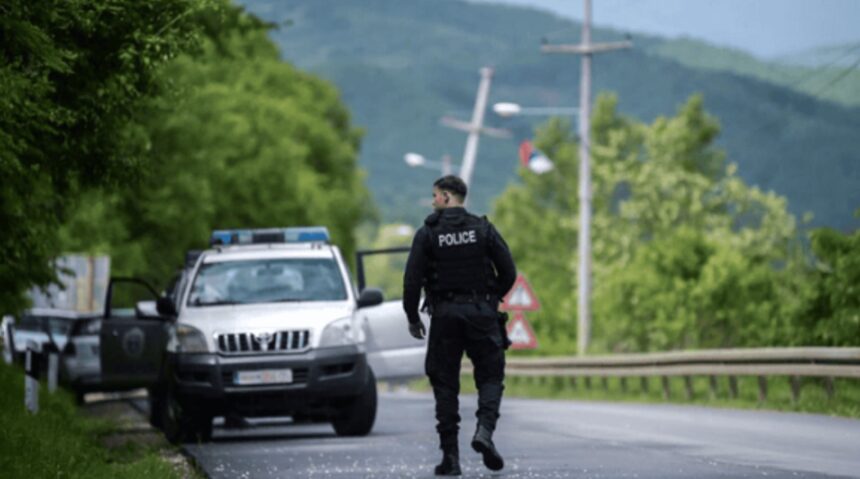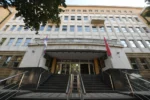Zagreb, July 22, 2025 —
Croatia’s Security and Intelligence Agency (SOA) has issued a stark warning in its latest annual report, stating that the security situation in the Western Balkans remains fragile—particularly pointing to Kosovo as a potential hotspot for renewed tensions.
SOA’s assessment emphasizes that unresolved inter-state disputes, especially between Kosovo and Serbia, pose a long-term threat to regional stability. “The escalation of tensions in Kosovo continues to represent a persistent risk,” the report reads, noting that despite ongoing efforts by the European Union and the United States, a sustainable resolution remains elusive.
Concerns over Northern Kosovo
In its evaluation of Kosovo, the Croatian agency highlighted the volatile situation in the Serb-majority north, where it claims there are organized groups aiming to destabilize the region.
SOA specifically referenced the armed attack on Kosovo Police in the village of Banjska on September 24, 2023, which resulted in the death of an officer. The report questions the origins of the paramilitary group’s organization and how it obtained heavy, military-grade weapons.
While Pristina has blamed the Serbian government for the incident, Belgrade has denied involvement. Milan Radoičić, a known political figure in northern Kosovo, admitted organizing the attack and fled to Serbia, where he was questioned but not prosecuted.
SOA also took note of Kosovo’s efforts to dismantle parallel Serbian institutions in the north—moves aimed at asserting full sovereignty and curbing Belgrade’s influence. According to the agency, this situation leaves space for further escalations and underlines the importance of the international security presence in Kosovo.
Serbia’s Strategic Balancing Act
Turning to Serbia, SOA observes that Belgrade continues to pursue a geopolitical balancing strategy, maintaining close ties with the West, Russia, and China. It warns that the promotion of the “Serb World” concept—which envisions political unification of Serbs across the Balkans—could have destabilizing implications for neighboring countries, particularly Bosnia and Herzegovina, Montenegro, and Kosovo.
Domestically, Serbia has experienced waves of student-led anti-government protests calling for democratic reforms, media freedom, and anti-corruption measures. SOA notes that state-aligned media have countered these movements by portraying them as part of foreign conspiracies, reinforcing a sense of national threat.
Interestingly, the report claims that Croatian institutions continue to be framed as a “permanent anti-Serb factor” in Serbia’s state-controlled narratives.
Regional Instability in Focus
The report extends its concerns to other Western Balkan countries. In Bosnia and Herzegovina, SOA points to deep-seated constitutional disputes and growing tensions between Republika Srpska and the international community. The entity’s leadership is said to be openly advocating for the dissolution of the Bosnian state with support from Russia.
In Montenegro, the report identifies a stark divide between pro-European and pro-Serb/pro-Russian factions, noting that while the current government seeks EU integration, its coalition includes radical Serbian parties with nationalist and anti-Western agendas.
SOA also highlights the growing political role of the Serbian Orthodox Church, which it describes as instrumental in promoting the “Serb World” ideology across the region.
Organized Crime and Russian Influence
The report warns that organized crime networks, particularly Serbian-Montenegrin groups, remain active in cocaine trafficking from South America to Europe.
It further outlines Russia’s continued disruptive role in the Balkans, facilitated through Serbia. Russian intelligence operatives are reportedly present in Serbia, with media outlets like RT and Sputnik serving as key tools for spreading pro-Russian and anti-Western narratives throughout the region.
A Stable Croatia Amid Regional Turbulence
Despite the complex security environment, SOA affirms that Croatia remains a “secure and stable democracy.” However, the agency notes that global shifts—driven by technology, geopolitical conflict, and the fallout from the war in Ukraine—have worsened the overall security landscape in Europe.
For now, Croatia faces no immediate direct threats to its national security or constitutional democratic order, the report concludes.







